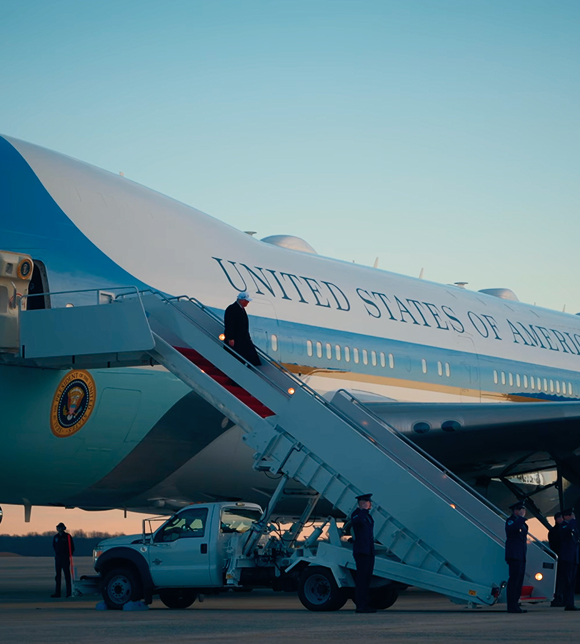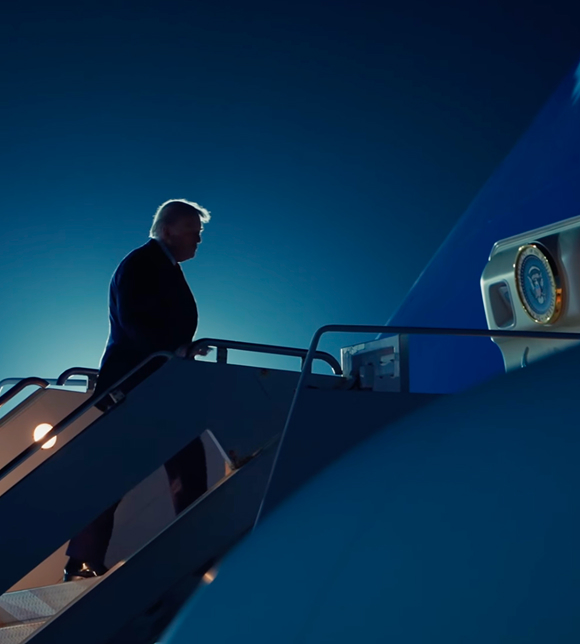Joint Statement on a Framework for a United States – Switzerland – Liechtenstein Agreement on Fair, Balanced, and Reciprocal Trade
Today, the United States of America (United States), the Swiss Confederation (Switzerland), and the Principality of Liechtenstein (Liechtenstein) (collectively, Participants) express through this Framework their intention to negotiate an Agreement on Fair, Balanced, and Reciprocal Trade (Agreement). Through the Agreement, the Participants intend to create a dynamic and balanced trading relationship on a reciprocal and mutually advantageous basis, with a view toward creating good, high-paying jobs and economic growth in their markets. The Participants share a desire to make trade fairer, easier, and more substantial. The Participants further share a desire to foster secure and resilient supply chains and a conducive business environment to attract high-quality and trusted investment. Switzerland intends to take action to balance its trade with the United States, including by purchasing U.S. goods, facilitating investment in the United States, and removing tariff and non-tariff barriers for U.S. goods. The Participants intend to immediately begin negotiations of the Agreement with the aim to make significant progress, and if possible conclude the Agreement, by the first quarter of 2026, subject to their respective domestic processes.
The Participants intend for the negotiations of the Agreement to focus on the following key areas:
- Investment, Commercial Considerations, and Opportunities
- Switzerland and Liechtenstein support the increase of foreign direct investment by Swiss and Liechtenstein enterprises into the United States. Switzerland intends to encourage and facilitate at least $200 billion of investment into the United States, across all 50 states, over the next five years, to create manufacturing and research and development jobs. Liechtenstein intends to encourage and facilitate at least $300 million of investment into the United States and increase by 50 percent over the next five years the number of jobs created by its private sector in the United States. Switzerland and Liechtenstein intend to encourage and facilitate one third of these investments by the end of 2026. The United States intends to determine, in its application of reciprocal tariffs, if Switzerland and Liechtenstein have taken appropriate steps to encourage and facilitate these investments and associated job creation. If needed, the Participants intend to jointly discuss the steps taken to encourage and facilitate such investment and job creation and determine additional measures for investment promotion and facilitation.
- The Participants intend to encourage their enterprises to promote and develop training and apprenticeship programs, including Registered Apprenticeship programs, for U.S. workers in key high-growth sectors in the United States, taking into account their current and future investments. The Participants intend to cooperate on this issue.
- Switzerland and Liechtenstein intend to work together with the United States on addressing potential distortions of bilateral trade and investment arising from industrial subsidies or actions of state-owned enterprises.
- The Participants intend to create the best possible environment to encourage and facilitate cross-border investments and job creation.
2. Tariffs
- Recognizing the Treaty of 29 March 1923 between Switzerland and Liechtenstein on Accession of the Principality of Liechtenstein to the Swiss Customs Area, the United States intends to apply the same tariff treatment to both Switzerland and Liechtenstein.
- Switzerland and Liechtenstein intend to improve market access for U.S. goods, through the application of zero duties on all U.S. industrial goods, U.S. seafood, and certain U.S. agricultural goods, and through the application of tariff rate quotas for a number of other U.S. agricultural goods.
- The United States intends to apply the higher of either the U.S. most-favored-nation (MFN) tariff rate or a tariff rate of 15 percent, comprised of the MFN tariff and a reciprocal tariff, on originating goods of Switzerland and Liechtenstein and to apply only the U.S. MFN tariff rate on certain products listed in the “Potential Tariff Adjustments for Aligned Partners” Annex to Executive Order 14346 (Modifying the Scope of Reciprocal Tariffs and Establishing Procedures for Implementing Trade and Security Agreements).
- The United States intends to promptly ensure that the MFN tariff and the tariff imposed pursuant to Section 232 of the Trade Expansion Act of 1962 (Section 232) do not exceed 15 percent for originating pharmaceutical goods and semiconductors of Switzerland and Liechtenstein subject to Section 232 tariffs. The United States intends to positively consider the effect of the Agreement on national security, including when taking action under Section 232.
- The Participants intend for the benefits of the Agreement to accrue predominantly to the Participants. If the Participants determine that the benefits are not accruing predominantly to the Participants, the Participants may modify the Agreement with rules of origin necessary to achieve that objective.
- The Participants intend to cooperate, where relevant, on matters relating to transshipment and circumvention practices, in accordance with their respective domestic laws and regulations.
3. Non-Tariff Barriers and Related Matters
- The United States and Switzerland each intend to accord to conformity assessment bodies located in the territory of the other treatment no less favorable than they accord to conformity assessment bodies located in their own respective territories. Treatment under this paragraph includes procedures, criteria, fees, and other conditions relating to accrediting, approving, licensing, or otherwise recognizing conformity assessment bodies.
- The Participants intend to apply the World Trade Organization(WTO) Decision of the Technical Barriers to Trade Committee on Principles for the Development of International Standards, Guides and Recommendations (2000) to determine relevant international standards within the meaning of Articles 2 and 5 and Annex 3 of the WTO Agreement on Technical Barriers to Trade, and intend to negotiate provisions clarifying this understanding. With respect to automobiles, Switzerland intends to work with the United States to facilitate the recognition of Federal Motor Vehicle Safety Standards.
- The Participants intend to advance cooperation in mutually agreed strategic sectors, including medical devices. Switzerland intends to facilitate the acceptance of medical devices cleared or approved by the U.S. Food and Drug Administration.
- The United States acknowledges the efforts made by Switzerland to facilitate trade in beef and beef products. Switzerland intends to work with the United States to address specific measures that restrict market access for U.S. poultry and poultry products, strengthening opportunities for U.S. agricultural exports in Switzerland. The United States and Switzerland intend to cooperate on streamlining sanitary requirements for labelling and certificates, particularly for beef, bison, and dairy products.
- The Participants intend to discuss robust commitments related to intellectual property rights protection and enforcement, including transparent and fair treatment of geographical indications.
- The Participants intend to continue to provide an open and competitive environment for service suppliers. Accordingly, Switzerland and Liechtenstein intend to consider opportunities to provide service suppliers additional access to their markets.
- The Participants intend to increase their cooperation on labor-related trade issues, and work to address forced labor, including forced child labor, and the worst forms of child labor in supply chains. Switzerland and Liechtenstein intend to continue to protect internationally recognized labor rights.
- Switzerland and Liechtenstein intend to continue to adopt and implement high levels of environmental protections, effectively enforce their respective environmental laws, and work together with the United States on trade-related environmental measures, including those that may affect trade between each of them and the United States.
- The Participants intend to negotiate commitments on good regulatory practices to ensure greater transparency, predictability, and participation throughout the regulatory lifecycle.
- With a view to achieving greater reciprocal benefits from participation in their procurement markets, the Participants reaffirm their commitments under the WTO plurilateral Agreement on Government Procurement and their other binding international procurement obligations, and intend to clarify that states that are not party to these agreements do not benefit from non-discriminatory treatment in procurement at the central governmental level covered by such agreements, including through further implementation measures in their respective national procurement frameworks, if necessary.
- The United States and Switzerland intend to foster the use of technology solutions that allow for full pre-arrival processing, paperless trade, and digitalized customs procedures.
4. Digital Trade and Technology
- Switzerland and Liechtenstein intend to continue to refrain from imposing digital services taxes.
- The Participants intend to facilitate trusted cross-border data flows and address data localization requirements, taking into account legitimate public policy objectives.
- The Participants intend to explore mechanisms that promote interoperability between their respective privacy frameworks with a view to facilitating secure cross-border transfers of data.
- The Participants intend to refrain from imposing customs duties on electronic transmissions and to support the multilateral adoption of a permanent moratorium on customs duties on electronic transmissions at the WTO.
5. Economic Security
- The Participants intend to strengthen their cooperation on economic security, including on addressing non-market policies of third countries.
- The Participants recognize that the effective enforcement of economic and trade sanctions serves the Participants’ shared interests. The Participants intend to strengthen existing cooperation with regard to U.S. export controls and sanctions.
- Switzerland and Liechtenstein intend to cooperate with the United States on matters related to the review of inbound investment, including on the basis of national security.
- Switzerland and Liechtenstein intend to work cooperatively with the United States to secure supply chains and improve supply chain resilience in sectors of shared interest.
The Participants intend to coordinate the timing of their respective domestic processes for the entry into force and implementation of the Agreement.
This document does not constitute a legally binding instrument creating or affecting any rights or obligations under international law.














